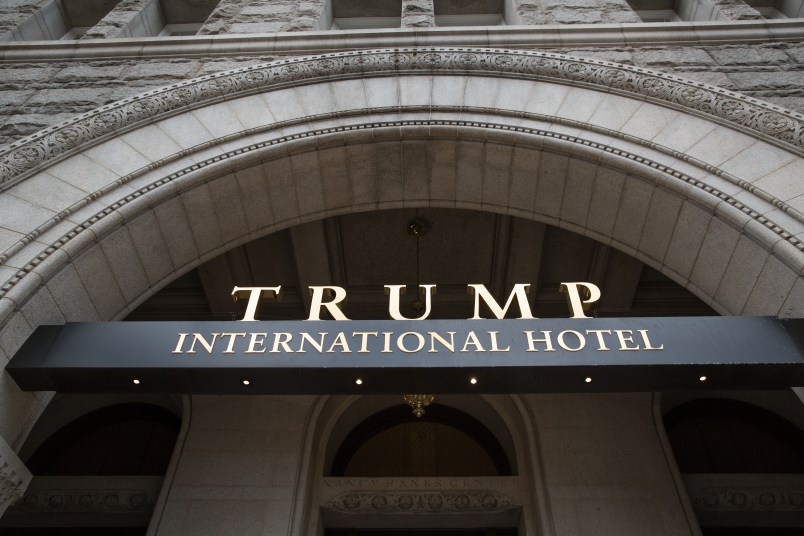A federal judge ruled on Wednesday that the District of Columbia and the state of Maryland have stated valid claims to sue President Donald Trump for allegedly violating the foreign and domestic emoluments clauses of the Constitution over profits the President earned from the Trump International Hotel in Washington, D.C.
Judge Peter Messitte previously ruled that D.C. and Maryland had the legal standing to sue Trump over the emoluments his hotel has received from foreign, federal and state governments since taking office. Messitte argued that the two jurisdictions and their residents were being sufficiently harmed by foreign and state government officials’ decision to stay at the Trump International Hotel over other businesses in D.C. and Maryland. Messittee also in March limited the scope of the lawsuit to center on business only related to the Trump International Hotel and not other Trump Organization properties.
In the Wednesday ruling, Messitte denied another attempt by Trump to dismiss the lawsuit, ruling that the court should use a broad definition of the term “emoluments” and that the clause applies to the presidency. In the verbose ruling, the judge sided with D.C. and Maryland’s broader definition of emoluments, which he argues goes beyond simple protections against “bribery.” Messittee also chastised Trump’s lawyers for failing to provide evidence to support arguments that former presidents held trading partnerships with foreign and domestic governments.
“The Court is satisfied, consistent with the text and the original public meaning of the term ‘emolument,’ that the historical record reflects that the Framers were acutely aware of and concerned about the potential for foreign or domestic influence of any sort over the President. An ‘emolument’ within the meaning of the Emoluments Clauses was intended to reach beyond simple payment for services rendered by a federal official in his official capacity, which in effect would merely restate a prohibition against bribery. The term was intended to embrace and ban anything more than de minimis profit, gain, or advantage offered to a public official in his private capacity as well, wholly apart from his official salary,” he wrote.
The judge ruled specifically that under the domestic emoluments clause, D.C. and Maryland can plausibly state a claim that Trump violated the Constitution with state government officials’ stays at the hotel, tax concessions from the D.C. government, and the Trump International Hotel’s lease from the federal government D.C.
Trump hasn’t divested his business holdings, even though he handed over Trump Organization dealings to his sons while serving as President. He also vowed to donate any profits made from foreign governments to the U.S. Treasury– about $150,000 so far, according to the Wall Street Journal.
Read the ruling below:
Correction: The original version of this story mistakenly described today’s ruling as involving standing. The judge had previously ruled in plaintiffs’ favor on the standing issue.







I’m not sure bullets are the right analogy for a sitting president.
A metaphysical bullet.
What other penetrating armor analogy would you recommend?
Well, it’s a start. I just hope this actually happens and that they take the orange anus down!!!
At some point cable news is just going to break. It cannot handle the load.